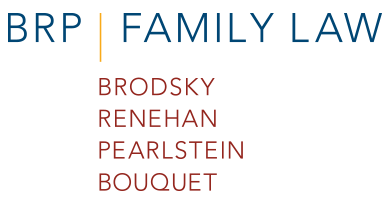Before a Maryland court can consider a monetary award to one of the parties must first identify the marital assets and then value the assets. Identification of what is marital and what is non-marital is not always straightforward. Of course, those assets that were acquired prior to the marriage, inherited, or gifted may be more easily identifiable, but not always.
In some divorce cases, it is necessary to trace assets to determine what is and is not marital assets. These days, people are getting married later in life. They may have built up a significant net worth before the marriage. If they do not have a valid prenuptial agreement that excludes certain property from marital assets, or have maintained the assets separately, they may have difficulty showing that the assets are not marital.
In any complex divorce case, you should work with an attorney to protect your legal interests. High net–worth divorces can be lengthy and difficult when your finances are at stake. The attorneys at Brodsky Renehan Pearlstein & Bouquet represent clients in complex divorce matters.
Determining the Value of Marital Property
The valuation of marital property in a divorce can be determined in one of two ways:
- By mutual consent in a marital settlement agreement or by stipulation in a contested divorce (when the spouses disagree over the equitable distribution)
- By a judge when both spouses cannot agree on the value of the property itself, and often with the use of forensic experts
How the Law Views Marital vs. Non-Marital Property
Maryland law defines marital property as “property, however, titled, acquired by 1 or both parties during the marriage.” The law also specifically excludes from the definition property that was:
- acquired before the marriage;
- acquired by inheritance or gift from a third party;
- excluded by valid agreement; or
- directly traceable to any of these sources
Although the law seems straightforward based on the plain words of the law, in practice, it is anything but. If either spouse came into the marriage with any assets, or they received a gift or inheritance in their name, things can get complicated.
Significant Non-Marital Assets Can Make Valuing Marital Property Complicated
The fourth exclusion of assets – directly traceable to any of the above sources – often presents issues when valuing marital property. If a spouse holding non-marital assets passively earned money through dividends or appreciation due to market forces, it may not be considered marital property. However, if they put forth efforts during the marriage to make money, such as buying new stock or actively reinvesting the money, it may be considered marital property.
Now, imagine that one or both spouses had a robust investment or retirement portfolio before the marriage, or they had money that they received from their own family (not gifted to the couple). You would need to ascertain which part of the asset is marital and which is non-marital. The determination is not always easy, and there is room for disagreement.
Further, without any intention on a spouse’s part, non-marital property could become marital property. For example, if you bought a home jointly titled in both the spouse’s names during the marriage, even with non-marital assets, it would be considered marital property. Further, if you used non-marital assets to buy stock in a jointly held investment account, it would also become marital property.
Direct Tracing Is Required to Show that Property Is Non-Marital
It may become necessary for you to trace one or more assets to determine whether they are marital property, or what proportion of them are. This tracing requires the help of a forensic expert, both to make the calculation and serve as your expert witness if the case goes to trial.
Each spouse may work with their own expert to trace assets. It is not uncommon for each spouse to have starkly different figures regarding marital property. The need to hire forensic experts is even greater when you are dealing with a high net worth divorce.
You may need to provide extensive documentation to prove the character of the asset. Depending on the duration of the marriage, that could be difficult. If you were married for a long time, you may not have account statements dating back decades. Brokerage firms are only required to keep blotters of customer activity for six years and trade confirmations for three. If you do not have the necessary records, you may struggle to meet your burden of proof to show that assets are non-marital.
The Character of Non-Marital Property Could Change
If marital and non-marital property are commingled, asset tracing could become even more difficult. For example, if one spouse had a brokerage account before the marriage, and they continue to put money in the account during the marriage, it would greatly complicate asset tracing. The more the assets become commingled, the harder it will become to prove that assets are not marital. Commingling on its own does not automatically convert non-marital assets to marital, but it will make tracing tougher. It is entirely possible that commingling, along with many active transactions, would change the character of the asset.
If a spouse cannot prove that assets are not marital, then they would be included in marital property. The requirement is that a spouse demonstrates through documentation and testimony that the assets are directly traceable.
Judges are adept at getting to the bottom line in a contested divorce case. They can grasp and follow difficult fact patterns relating to assets, and they will ask tough questions of experts testifying in their courtroom. Your attorney must carefully select the forensic expert who will value your assets and testify on your behalf if your case is litigated. At BRP Family Law, we are experienced at working with experts to present the strongest possible case on your behalf.
Contact a Maryland Divorce Lawyer Today
If you are going through a divorce, you need legal help at the earliest possible stage. Contact the attorneys at Brodsky Renehan Pearlstein & Bouquet today to schedule an initial consultation. We can explain your case and some of the issues that you may be facing in your divorce. Our lawyers are well-positioned to handle complex divorce cases because all we practice is family law.

